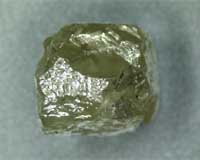| . |  |
. |
Dareta, Nigeria (AFP) June 11, 2010 Armed with hoes and shovels, men clad in protective suits carefully and steadily excavate a layer of soil contaminated with dangerous levels of lead around a homestead in northern Nigeria. The farming village, one of six hit by a lead poisoning epidemic linked to illegal gold mining in northern Nigeria, has lost 61 children in recent weeks. Foreign environmental experts aided by dozens of young men from the village have slowly started the painstaking exercise to clean up homes with high lead contamination. The plan is to decontaminate six villages in northern Nigeria's Zamfara state affected by lead poisoning which has killed hundreds of people, especially children in recent months. "It is a simple process of taking off five centimetres of the soil and replacing it with clean soil because the lead is still on the surface," Ian von Linden of the US-based environmental engineering firm Terra Graphics, who is heading the operation, told AFP. Workers stuff the lead-bearing soil into plastic grain sacks and heap it outside the mud huts awaiting disposal. As simple as the cleaning up process may appear, experts and villagers fear it could be stalled by a four-month long rainy season which has just started. "We are in a good-bad situation. Rains in some sense might help us by washing away some of the lead but the real downside is that it can push the lead deeper than the soil thickness we are taking off and if that happens we have to wait till the end of the season," said Linden. At least 70 of the 112 homes in this 2,000-strong remote village with lead levels up to 125 times higher than the standard amount of lead exposure accepted for residential soil have been slated for clean up, but nine days into the exercise work has started in only two homes. "We are under a kind of pressure," said Linden. And the decontaminators need to move faster. Already the neighbouring Abare village which lost over 100 children to the lead poisoning is "crying for urgent attention", one of the environmentalists said. "We have a bigger problem than we know, surveillance is very poor. The two villages are just a tip of the iceberg," the expert said on condition of anonymity, adding that the official casualty figure has been underestimated. Nigerian health officials maintain that 355 people have been poisoned since the start of year out of whom 163 died, 111 of them children below the age of five. "There have been more deaths from lead poisoning here than in the whole world combined in the last 40 years," Linden said. Remote and with a rough terrain, Dareta village, like most villages in the area, is only accessible by four-wheel drive cars. Village ruler Muhammad Bello is disturbed at the prospect that the village might be rendered totally inaccessible, should the rains intensify. High heaps of clean soil just delivered dot parts of the village and more deliveries are coming in. The region recorded its first heavy rains late this week which muddied the roads, making it more difficult to traverse by even by all-terrain cars. "We hope the work is finished in less than a month otherwise the village will be cut off because we have no bridges to cross the streams that fill up with the heavy rains," Bello said. In addition to the dead, there are over 300 children with high lead contamination well above hospitalization levels, according to Linden. At least 20 of the children have shown signs of neurological disorder and been seized by occasional bouts of mental imbalance and abnormal behaviour, said residents. Survivors are at risk of various degrees of brain damage and the longer it takes to treat them the worse they could get, said Linden. Here children still play around the ponds and the open wells used for the final stages of gold extracting processes and already identified to have high lead levels. Medecin Sans Frontiers (MSF) which has set up a clinic at Bukkuyum, 80 kilometres away to treat lead-poisoned children from nearby Yargalma village, where over 100 toddlers died, plan to set up one in Dareta in coming weeks, according to its project leader, Andreas Haggstrom.
Share This Article With Planet Earth
Related Links Africa News - Resources, Health, Food
 New twist in African 'blood diamonds' saga
New twist in African 'blood diamonds' sagaHarare, Zimbabwe (UPI) Jun 10, 2010 A long-running controversy over Zimbabwe's allegedly illegal diamond trade, which human rights groups say is run by the army to enrich the power elite, took another twist with a watchdog official saying Harare can resume exports suspended in 2009. Abbey Chikane of the Kimberly Process, an international body that regulates the trade in rough diamonds to ensure they don't fund wars, recom ... read more |
|
| The content herein, unless otherwise known to be public domain, are Copyright 1995-2010 - SpaceDaily. AFP and UPI Wire Stories are copyright Agence France-Presse and United Press International. ESA Portal Reports are copyright European Space Agency. All NASA sourced material is public domain. Additional copyrights may apply in whole or part to other bona fide parties. Advertising does not imply endorsement,agreement or approval of any opinions, statements or information provided by SpaceDaily on any Web page published or hosted by SpaceDaily. Privacy Statement |